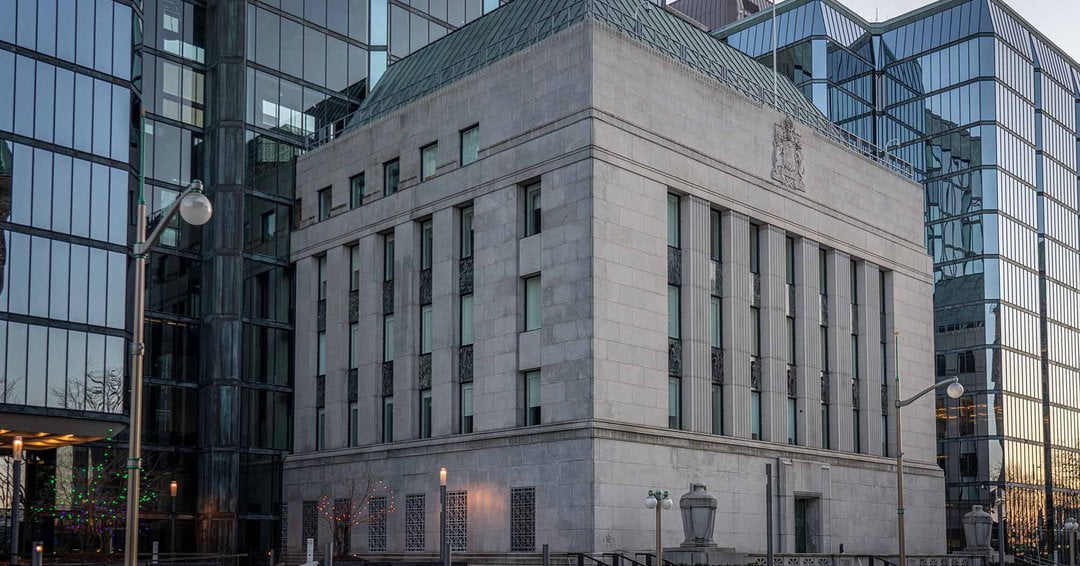
Expert's Reaction to the increasing rates by the Bank of Canada
The Bank of Canada raised its overnight rate target by 25 basis points to 0.5 percent in its second policy rate announcement of 2022. Economists and industry experts are weighing in on the bank's decision, which marks the first increase in the mortgage-influencing overnight rate since October 2018.
When COVID-19 broke out, the Bank of Canada made three emergency cuts to the overnight rate in March 2020, bringing it down from 1.75 percent in a matter of weeks as the pandemic sent shockwaves through global markets. Until now, the overnight rate has remained at a quarter percent.
The Bank of Canada stated in its announcement that Canada's economic growth has been strong, rising 6.7 per cent in Q4-2021, higher than the bank had predicted and confirming that "economic slack has been absorbed." Household spending is increasing as a result of the Omicron variant's rebound, and this trend is expected to continue as more public health restrictions are lifted.
However, the Consumer Price Index for inflation is 5.1 percent, well above the Bank of Canada's inflation target of 2%. Inflation may also arise as a result of the Ukraine conflict and rising commodity prices.
"Russia's unprovoked invasion of Ukraine is a big new source of worry," the bank stated in a news release. "Oil and other commodity prices have skyrocketed." This will raise global prices, and the negative effects on confidence and fresh supply disruptions may weigh on the global economy. Volatility in the financial markets has risen. The situation is still fluid, and we are keeping a careful eye on developments.
As the economy grows and inflationary pressures remain, the Bank of Canada anticipates that interest rates will need to rise further. The next announcement of the overnight rate goal is set for April 13th, 2022.
Economic Research at RBC
After a near call in January, Josh Nye, senior economist at RBC Economics, noted in a daily economic briefing that there "looked to be a low bar to raise rates." Even though January's job data were negative, Nye noted that the labour market has recovered from prior COVID-19 waves, and GDP is expanding. Inflationary pressures are projected to rise further as a result of rising food and energy commodity prices as a result of the Russia-Ukraine war.
"The Bank of Canada will have to assess the additional inflationary pressure caused by the war against two-way domestic effects (greater revenue for commodities producers, higher prices for consumers) and worries about the global economic picture."
Normally, central banks would consider geopolitically driven commodity price pressures, but with inflation already well over the goal, the Bank of Canada has stated that it is more concerned about upside risks to inflation than downside ones. Indeed, it stated that 'consistently rising inflation raises the likelihood that longer-run inflation expectations may rise.'
Aside from inflation projections, the bank will keep a close eye on financial circumstances. Government bond rates have declined as growth fears and risk aversion have increased, while corporate credit spreads have grown. Other financial channels have been rather stable—the Canadian currency has been trading in a narrow range over the last month, and the TSX has performed well in comparison to other equity markets.
At this point, we don't believe geopolitical events prohibit the second rise in April, nor do they argue for the more aggressive tightening path that markets continue to price."
Bank of Montreal (BMO)
Another rate rise might be on the way next month, according to Benjamin Reitzes, managing director of Canadian rates and a macro analyst at BMO. If global circumstances do not "further worsen," April might bring another 25 basis points.
"The tone on the domestic economy was fairly positive following yesterday's better-than-expected Q4 GDP result." There was considerable momentum coming into 2022, and the year began better than expected. This implies that 'first-quarter growth is now looking more strong than originally anticipated.' The Bank recognised growth in housing, household expenditure, and trade, and expressed confidence that employment would recover from the Omicron-induced dip in January.
The Russian invasion of Ukraine 'creates a significant new source of uncertainty.' The Bank predicts an increase in inflation, while the loss of confidence and additional supply difficulties 'may weigh on global growth.' There's a lot of ambiguity there, and the BoC will be keeping a careful eye on things.
Assuming the economy continues on its upward track and inflation remains high (which seems unlikely in the short term), the Bank of Canada 'expects interest rates will need to increase further.' This is consistent with the rate increase path narrative and our forecast of another 25 basis point rise at the April meeting. Meanwhile, there have been no adjustments to the balance sheet, while policymakers are considering discontinuing reinvestment and QT."
The TD Economics
The Bank of Canada opted to raise the overnight rate today, as "widely predicted," according to TD Economics senior economist James Orlando. However, the bank's policy approach is not set in stone, and review may be required if the Russia-Ukraine crisis unfolds.
"It occurred at long last. The Bank of Canada has raised its policy rate, possibly kicking off a series of interest rate rises over the next few months. With employment expected to bounce strongly next week and inflation expected to rise further, the necessity for higher interest rates is self-evident."
"The Bank of Canada's policy path is not fixed." Financial conditions are tightening as a result of the Russia/Ukraine war. If the spillover becomes more entrenched, greater tightening may be necessary."
CIBC Capital Markets
Avery Shenfeld, managing director and chief economist at CIBC Capital Markets, indicated that statistics supporting the economy's rebound from Omicron and stronger-than-expected growth may be why the BoC opted to raise the overnight rate now rather than in January.
"So why now, rather than in January?" The key difference is that, unlike two months ago, the Bank can now point to data indicating that 'the rebound from Omicron appears to be well underway,' which would presumably include evidence from declining hospitalizations as well as news of a full reopening in previously shuttered or capacity-limited services.
Aside from the January employment loss, which is expected to be restored by March, the economy has shown to be somewhat more robust to Covid's effects. The Bank classified both Q4 and predicted Q1 growth as greater than expected, and inflation is expected to outperform its previous prediction. The only serious cloud cited on the growth front was the Ukraine war, which is considered as a "new source of uncertainty" that would be "closely monitored," but also as a source of inflationary pressure.
If we had a little quibble with the Bank's strategy to starting a tightening cycle, it would be with today's decision to continue reinvesting maturing Government of Canada bonds in its portfolio into new assets.
We see no evident rationale in assisting the bond market in holding down yields while simultaneously attempting to boost interest rates by raising the overnight rate. Why should you push and pull at the same time? Perhaps it wants to make use of the opportunity provided by the April Monetary Policy Report and the official press conference that follows its release to spell out the details of its quantitative tightening approach."
Ratehub.ca
The Bank of Canada is happy with Canada's economic growth and labour market, according to James Laird, co-founder of Ratehub.ca and president of CanWise Financial mortgage brokerage, in an email statement. The bank believes that "COVID-19 is behind us, at least for the time being," although inflation is still a risk.
"The Bank's main concern is inflation, which came in at 5.1 percent in January and is anticipated to rise further owing to increased commodity costs caused by the European war." The Bank is confident that by raising interest rates more in the coming months and lowering holdings of Government of Canada bonds, it will be able to return inflation to its objective of 2%.
All banks and mortgage lenders are expected to announce a 25 basis point hike in prime lending rates by the end of this week. When this happens, Canadians with variable-rate mortgages and home equity lines of credit (HELOCs) will feel the effects immediately. This group should also plan for further rate hikes throughout the year.
Anyone with a fixed-rate mortgage will be unaffected until their next renewal period, at which point they should expect increased interest rates. Those looking to buy a house should be pre-approved to lock in today's fixed rates for 120 days."
Economics at BCREA
Chief economist Brendon Ogmundson stated in an Economics Now email update from the British Columbia Real Estate Association (BCREA) that there is more uncertainty in the market now than when the bank began its tightening cycle. The Russian invasion of Ukraine has created a "new source of insecurity in the global economy."
"The Bank must now deal with significantly greater inflation and inflation expectations than it is comfortable with, while simultaneously monitoring the possible impact of Russia's invasion of Ukraine on financial markets and commodities prices."
While we expect the Bank to continue tightening, eventually raising its overnight rate to 1.75 per cent by early 2023, the global economy is more uncertain now than when the Bank opted to begin this tightening cycle. Long-term Canadian interest rates are already reflecting this uncertainty, with the formerly swiftly rising five-year Government of Canada bond yield decreasing approximately 30 basis points in recent days."









